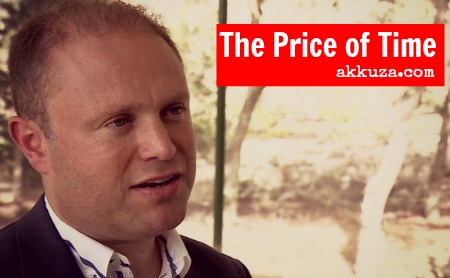Take a step back. Try to disentangle your brain from the bombshell of Panamagate as it unfolded in Malta. Now take a look at Prime Minister Muscat and his reaction to the whole business over the last seven weeks. In Malta Panamagate came early, probably prematurely. Konrad Mizzi got an early warning of the dangers to come when Caruana Galizia dropped some hints about the information that had come to her possession. “The lamb for Easter would come from New Zealand” was the coded message that set alarm bells ringing in Mizzi’s head. Mizzi had been handed an unexpected advantage – unlike the bigger heads that were to be shaken on the night of Sunday 3rd April he had been handed a lifeline from the quarters he’d least expect. Mizzi and Muscat had been gifted a precious amount of time to work on a defence.
Time. That’s the point here. Timing was crucial and every minute gained to work on the alibi was worth a mountain of gold. Nexia BT, Brian Tonna, Keith Schembri, Kasco, Panama, New Zealand, Adrian Hillman, more Konrad Mizzi. The news trickled out slowly as Caruana Galizi’s blog turned gatekeeper of the leaked information for a period of time – at least until the international bomb would explode thanks to Süddeutsche Zeitung and ICIJ.
This gift was a godsend for Muscat and Mizzi. We were regaled with the “declaration of assets”, the “family planning” and the “full collaboration” stories. Muscat could sit and watch and do what he does best: gauge public opinion. Better still he could shift the goalposts of assessment. It would no longer be about the existence of a structure using jurisdictions that have a notorious and shady reputation. It would become a case of whether money would be found in Panama or New Zealand. Muscat would skilfully manipulate the discussion until the question of Mizzi’s suitability as minister (and Schembri’s as Chief Advisor) would hinge only on whether any corruption could be proven.
It’s not the point really. Put simply both the Minister and the Chief of Staff should have resigned the moment it is was clear that they set up companies in dubious and shady jurisdictions. Whether there is any money to be found (and so much time lapsed till the international machine would actually be set in motion that it is doubtful whether any money would have stayed put so long) is irrelevant. The Panama Papers have shown that. Once the news was out, politicians the world over were slammed with big question marks on their head. The responsible politicians among them have already borne the consequences. And Konrad and Keith?
Konrad and Keith had the benefit of time on their side. The parameters of the discussion had already been shifted with the artful use of propaganda and party machinery. The question had already become whether or not any money would be found. Muscat had managed to shift it all to the far-fetched finding of a smoking gun. One wonders whether Konrad and Keith would have survived the onslaught had their names figured for the first time along with the rest of the ICIJ releases and not a good seven weeks before.
Which is not to say that both Konrad Mizzi and Keith Schembri are out of trouble. In any decent democracy they would already have been long gone. A decent Prime Minister would have distanced himself from members of his entourage who opt to create such structures in dubious jurisdiction for whatever reason and with whatever intent. He’d do it for his sake and for the sake of his party in government.
Muscat still needs to buy time. The rumblings within his own party must not be comforting. The Süddeutsche Zeitung journalists claim to have “several weeks” of news to release so the Panama Papers are not going to vanish overnight. The more politicians abroad fall thanks to these Papers the more pressure there is on Muscat and Mizzi’s “alibi” regarding the mythological hidden millions that are supposed to be hidden or absent.
Muscat needs to continue to buy time as he has done in previous scandals – notably the Manuel Mallia issue – the bonus time that he was graced with thanks to the early release of the information in Malta has run out. Now that the Panama Papers scandal is an international hot potato Muscat might find that buying time will become more costly. Distraction tactics, mud slinging on the opposition and fact twisting all have an expiration date.
He probably knows that when that time runs out he might find that the writing has been on the wall all along… that Mizzi and Schembri’s position is untenable and delaying the inevitable is disrespectful to the electorate that put Muscat into power, including those who tried their luck for the first time.
Next time they might not be too audacious.



